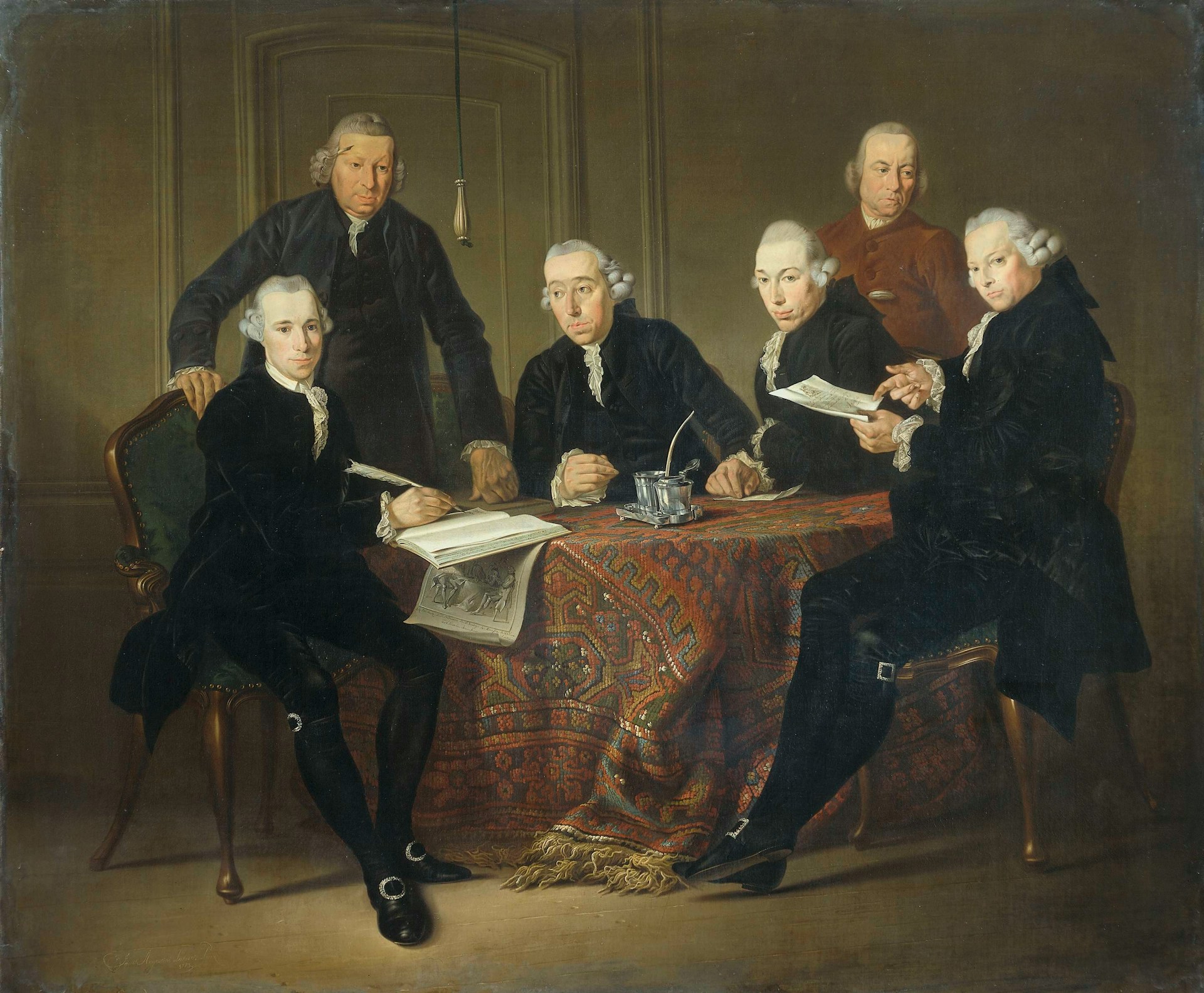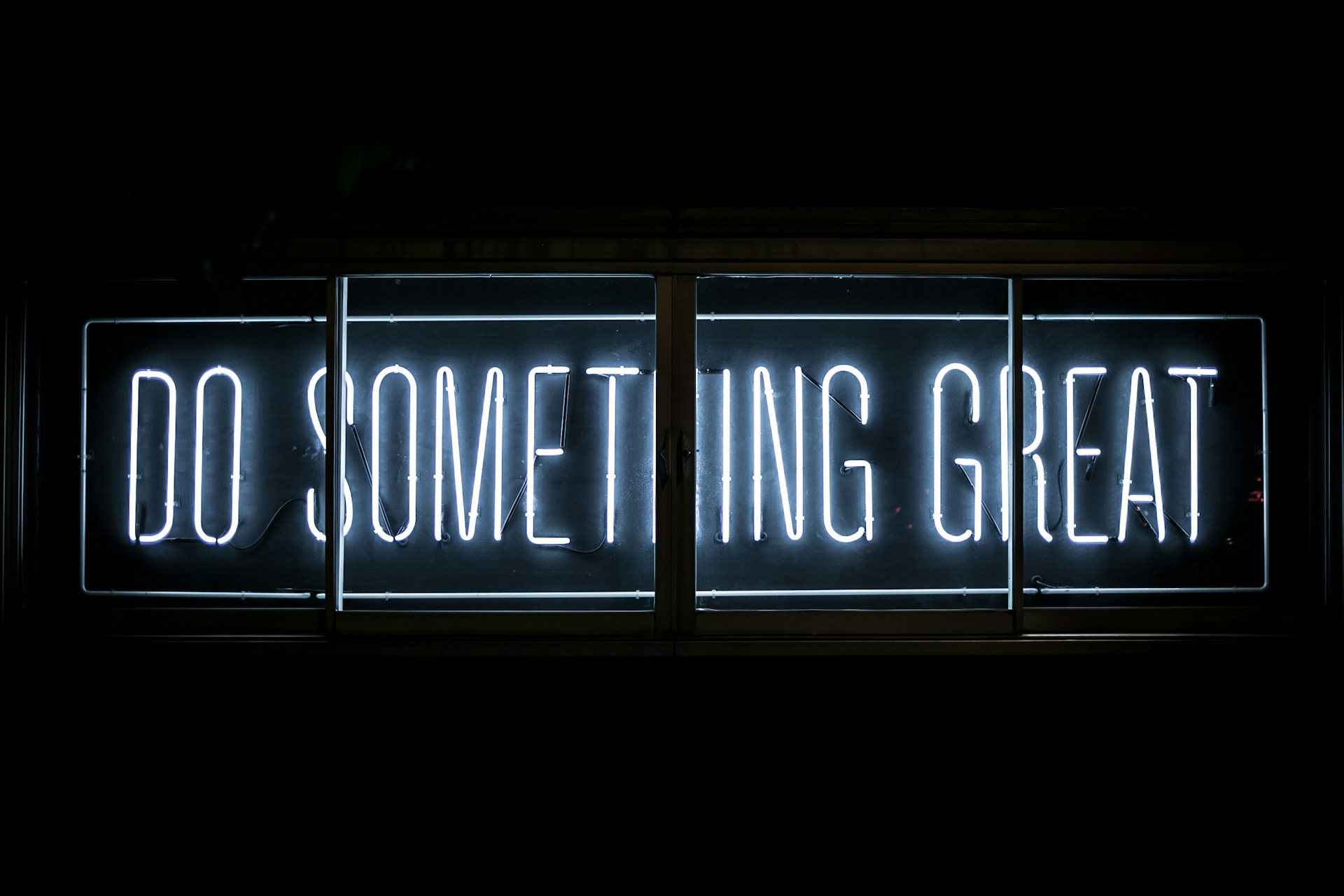This summer marks my 9-year anniversary at efood—a truly remarkable journey that began in 2015 in Marketing as a Digital Marketing Manager and continues in 2024 in the Product & BI departments as Chief Product Officer.
In this article, I’ll present and explain the most important lessons I’ve learned throughout this journey. These lessons are not linear, prioritized, or specific to Marketing or Product. They are essential professional and personal lessons that have helped me navigate different domains and levels, manage successes, and cope with failures.
#1: Take the hard projects.
In this article, I’ll present and explain the most important lessons I’ve learned throughout this journey. These lessons are not linear, prioritized, or specific to Marketing or Product. They are essential professional and personal lessons that have helped me navigate different domains and levels, manage successes, and cope with failures.
As “hard” can be described a project that has one or some of the following attributes:
- Has tricky implementation,
- Requires multiple departments synchronization,
- Has (very) tight deadlines,
- The risk of failure is high,
- The solution and winning approach is not clearly defined,
- Having a successful experience as an interim executive,
- Launching a truly innovative feature/campaign/project,
- Successfully turning around business performance etc.
Taking on hard projects offers a wealth of experience. First of all, it is one of the best learning experiences. Many hard projects are like “shock moments” that allow you to acquire condensed and valuable experience in a short amount of time. Your problem-solving skills and emotional intelligence will inevitably grow—skills that are very valuable for every modern professional.
Lastly, successfully dealing with hard projects will help your company grow with you as an active contributor and will make your career progression easier. Personally speaking, I don’t care how many years you work in a company; I care about the impact you had in those years. Often, impact is connected with hard projects (though not always). Some people fill Excel sheets for 5 years, while others build products from scratch and fail within a year. I prefer the latter.
#2: Choose your battles
If you were in the office, you would hear me saying this many times a day. Choosing (or better, prioritizing) your battles is a very effective concept for both long-term and short-term solutions. It helps you concentrate your efforts on the most important battles and be okay with losing the ones that are not important to you.
The “choosing your battles” concept improves prioritization, makes you more data-informed, and helps you develop better emotional intelligence. It trains you to identify which projects require data, which require a strategic approach, and which require guts.
I am not a fan of losing. I don’t like to lose (does anyone?). Choosing my battles helped me develop the right perspective; I don’t care how many battles I’ll lose as long as I win the most important ones that determine the overall result.
Imagine you have a pistol with 6 bullets (solutions) and 20 enemies (challenges). Choose wisely how to spend your bullets. Sometimes we “shot” all our bullets at a single challenge because winning that specific one helped us overcome the other 19. You’ll always have fewer bullets than challenges.
#3: It takes two to tango
This one is another cliché in our office and part of our Product principles. It is very helpful because whatever happens, no matter what others did wrong, it is about YOU and how you can become a better professional, even if 99% of the fault is not yours (you can work on your 1%).
There is always room for improvement, and I prefer to focus on this rather than blaming others. It’s very useful to always check what you did wrong in every situation you don’t like because this creates actions rather than excuses.
We humans are very good at spotting the bad moves and correcting others' actions, but when it comes to ourselves, due to our biases, we struggle to face reality. This principle was mostly inspired by James Clear and his book "Atomic Habits," which introduces the concept of tiny marginal gains and the idea of becoming 1% better every day.

#4: Do not compromise the edges that matter
Inspired by Seth Godin, this lesson is very helpful both for Product and Marketing. In a world where multiple projects run simultaneously and perfectionism is not an option (I’m not a fan of it anyway), you need to be really careful not to miss or drop anything important in a project, product, or marketing campaign.
Examples:
- Adding one more solution to a corner-case flow in a Product Requirements Document (PRD) that has already been reviewed and approved but is missing something that will impact delivery.
- Making one more commit to decrease the milliseconds of an API call that is marked as "fast" in your reports but is crucial for the whole infrastructure.
- Creating one more design variation to fix the width of a component, even if the fix isn't visible to the customer's eye, but is important for design system consistency.
The edges are (almost) infinite. You’ll need experience to successfully recognize the right “edges” for every situation. This experience is developed through feedback loops and retrospective sessions with fellow teammates. Once you gain it, it becomes very useful and makes you very effective.

#5: Manage Expectations
Managing expectations is very important, especially in bigger companies. Multiple projects run simultaneously, deadlines need to be met, and various business performance metrics need to be moved, all within a beautiful “chaos” that needs to be directed in a timely manner.
One good technique is to highlight the things we WILL NOT do. In many projects, we discuss what we need to do and good ideas, and what the competition has, but we do not often discuss the hard NOs for an initiative. For me, specifications that will not happen are equally important because they shed light on areas we have taken full responsibility to avoid working on.
The most effective approach, in my opinion, is one that Holly Sargeant taught me: under-promise and over-deliver.
This doesn’t mean hiding something until it happens. It is a pragmatic delivery approach, where everyone is aligned on what will be delivered, while the team tries to be on time and provide “the cherry on top” where applicable. This is especially relevant in Product Management, where we act as the intermediary between Business and Tech, handling business expectations while working with Tech to deliver the best solution.
#6: Avoid drama & build resilience
Oh god, please avoid drama. Imagine you have energy for 10 thoughts within a day. If you spend your thoughts on drama, the result will be zero. If you spend 5 thoughts on something new and 5 on how to promote and plan it, even if there is no additional capacity to build something new, you train your mind and shape your discovery and planning acumen, rather than your blame game acumen.
Drama is very sneaky. Once you get in, it will drain your energy, affect your mood, and take your clarity away. Drama often arises in hard projects when barriers seem unbreakable, deadlines are missed, complaints arise, or a project fails.
Avoid it at all costs. Focus on impact. Focus on effort. Focus on lessons learned. Focus on feedback. Don’t let drama distract you from getting something valuable. Even in the biggest failure, there is always something valuable.
#7: Lead by example
The transition from individual contributor to manager opened a new era for me. The first (and most difficult) task was to abandon my tasks and delegate them properly. This is the first pill you have to swallow. Many individual contributors fail to become managers due to this.
Having read many managerial books, received mentoring from exceptional managers, and trained and educated in management, my whole managerial framework starts with my core managerial principle:
Lead by example.
Simple but challenging principle.
Do you want a data-driven team? You should be data-driven.
Do you want a world class data-driven team? You need to be world class data-driven professional.
Do you want a disciplined team? You should be the most disciplined professional in the team.
Do you want a team that focus on impact? You should be the first that brings the most impactful projects in the table.
You set the rhythm. You heavily influence the culture. You lead by example.
#8: Continuous learning is a skill
I started in Marketing and eventually evolved into BI & Product Management. But even if I had stayed in Marketing, things change all the time. Tools change, strategies and tactics adjust, new tips and tricks emerge, and AI disrupts every field and sector, especially in digital industries.
The only things that stay the same are the fundamentals. In my opinion, the fundamentals will remain the same even after AI. Owning the fundamentals of Product Management is mandatory if you want to become a good Product Manager.
Besides updating your skills and knowledge, the expansion of knowledge is also important. As you progress in your career, you will face different challenges that require new knowledge (e.g., hiring).
After years of continuous learning, I have come to the following conclusions:
- Books are the best source for soft skills (communication, leadership, etc.).
- One book is not enough. You need at least 2-3 quality books on a topic.
- Re-reading good books every once in a while is underrated.
- Courses are very good for acquiring hard skills (coding, design, etc.).
- When it comes to tools you will spend a lot of time on, read their documentation religiously.
- Make sure to buy updated or fresh courses because tools evolve.
- If you don’t practice what you read, you won’t develop the skill.
- Practicing a skill requires time. Even if you read the books and practice, you need to continuously work on the skill. I haven’t defined the sweet spot in terms of how much time or how many times you need to do something to become competent, but I think it varies depending on the complexity, importance, and your anticipation of this specific skill.
As a learner, it’s useful to set your learning style. Do you want to become an expert in a field, or do you want to accumulate various skills and build your own unique skillset? Here is a book that will help you define if you’re an expert or a generalist. (I’m a generalist).
#9: Care
Inspired by Seth Godin Godin, a Marketing philosopher, this is the last and most important lesson. It distinguishes good from great professionals. It that can’t be taught or systemized. It that can’t be measured. You won’t find it in any job description. There is no lesson, or course (maybe some books like “Purple Cow”)
It’s really simple, yet rare:
You need to care.
If you don’t care, you will only deliver stakeholder requests.
If you don’t care, you will only deliver your requests while ignoring stakeholders.
If you don’t care, you will deliver something you believe is wrong because someone else believes it is right.
If you don’t care, you will just follow the process.
If you don’t care, you will not respect the process.
If you don’t care, team problems are not your problems.
If you don’t care, team problems are your only problems.
If you don’t care, you will use the hierarchy to hide.
If you don’t care, you will ignore the hierarchy in your own favor.
Care is highly connected with ownership. “It’s not mine to fix” is very common, especially in projects that are fragmented or cross-departmental.
I can’t stress this enough. We spend the majority of our daily time at work. Our time is valuable. Make it count.
Helpful book:
Cheers to the years to come and the challenges and opportunities that will arise!
Relevant posts:



















